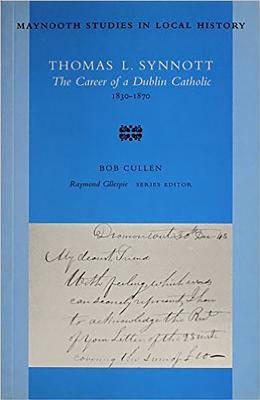
- Afhalen na 1 uur in een winkel met voorraad
- Gratis thuislevering in België vanaf € 30
- Ruim aanbod met 7 miljoen producten
- Afhalen na 1 uur in een winkel met voorraad
- Gratis thuislevering in België vanaf € 30
- Ruim aanbod met 7 miljoen producten
Zoeken
€ 17,45
+ 34 punten
Omschrijving
Thomas Synnott's connection with the vintner/grocer class in Dublin in the 1830s and his later rise in prominence as a vestry officer, and warden in O'Connell's repeal association places him in the classic middle-class Catholic mould for that time. His election to the board of guardians of the North Dublin workhouse and as High Constable for Dublin Corporation brought him to peaks reached by few of his repeal colleagues. This book examines Synnott's career which included his important role in voluntary relief during the Great Famine of 1845-50 and his appointment in 1848 as Governor of Grangegorman female prison in North Dublin. The problems encountered by Synnott as Governor which included a power struggle between him and the senior female officers there, demonstrate the local complexities behind the religious and political divisions of his time.
Specificaties
Betrokkenen
- Auteur(s):
- Uitgeverij:
Inhoud
- Aantal bladzijden:
- 64
- Taal:
- Engels
- Reeks:
- Reeksnummer:
- nr. 14
Eigenschappen
- Productcode (EAN):
- 9780716526308
- Verschijningsdatum:
- 11/09/1997
- Uitvoering:
- Paperback
- Formaat:
- Trade paperback (VS)
- Afmetingen:
- 146 mm x 222 mm
- Gewicht:
- 108 g

Alleen bij Standaard Boekhandel
+ 34 punten op je klantenkaart van Standaard Boekhandel
Beoordelingen
We publiceren alleen reviews die voldoen aan de voorwaarden voor reviews. Bekijk onze voorwaarden voor reviews.











